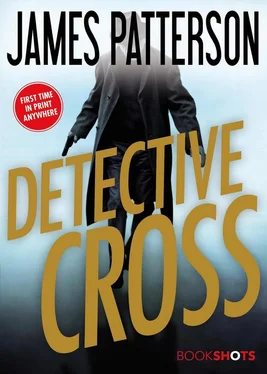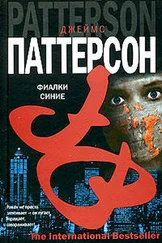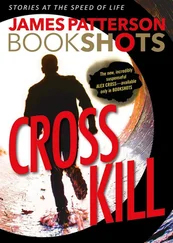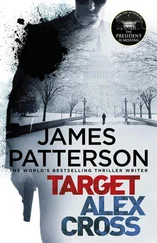D8 — HOSPITAL CENTER LINE NORTHBOUND, it blinked. VETERANS AFFAIRS MEDICAL CENTER.
I wished Kate Williams a good night and watched her walk off. Then I climbed on the empty Hospital Line bus. The driver, who looked to be in his fifties, was drinking coffee from a thermos, an egg-salad sandwich in cellophane in his lap. I noted his name, Gordon Light, posted at the front of the bus.
I identified myself as a consultant with the FBI, which he met with skepticism. “And how do I know you’re not messing with me?”
“I can give you the private phone number of the special agent in charge of the bombing investigation,” I said. “His name’s Ned Mahoney.”
He shifted in his seat. “I gotta be out of here in ten minutes. What do you want?”
Light turned out to be a nice guy. Asked about the people who rode the Hospital Center Line, Light said that during the day, in addition to the folks who lived along the route, you had sick people.
“Lots of them. Four big hospitals and a bunch of clinics on the line. That’s why we got the wheelchair lift.”
“Veterans?”
“Lots of them, too. You know, lost their arms and legs. Or their eyes. Or worse, their... you know.”
I got it. “How do you know that?”
“It’s in everything about them, man,” Light said quietly. “They look so damn humiliated. Can’t even pick their heads up. I feel so bad for those boys. And for the families, you know?”
“Lot of family members with them? The patients, I mean.”
“You know, with all the non-vets stopping at Children’s or Washington Hospital and the National Rehab, half and half maybe? Some relatives are very loyal, and you recognize them. There’s this one couple. He’s in a wheelchair, and there’s his sister right behind him every time they get on.”
“So you got regulars?”
“Oh, yeah,” he said, taking a bite of the sandwich. “But they’ll come and go. Very few stick around forever.”
“Sure,” I said. “You must hear things driving.”
Light swallowed before letting out a laugh. “You wouldn’t believe the things I’ve heard! What people say out loud in public, as if I wasn’t even there. Make my mother blush.”
“Ever hear any of the vets talking trash about the government? Congress?”
His laugh this time sounded bitter. “All the damn time.”
“Anyone in particular?”
He thought about that. “Well, they all do it. One snafu after another for the vets, you know. But there’s this one guy rides once or twice a week. He’s got nothing but piss and venom to say about the whole lot of them at the VA and up on the Hill. How the Capitol should explode.”
“He said that?”
“Yup, a week, maybe two ago. You bet.”
“You got a name for him?”
Light pursed his lips, shook his head. “Not that I’ve ever heard.”
“But you’d recognize him?”
“He stands out. Half his face got chewed up by an IED.”
At 8:30 the next morning, Bree and I were at the front entrance of Veterans Affairs Medical Center. We went straight to the plastic surgery unit, asked for the chief resident, and soon found ourselves in the office of Dr. Richard Stetson.
We explained who we were looking for. Stetson began to explain the various reasons he couldn’t help us, starting with doctor-patient privilege, not to mention the HIPAA laws.
“We have reason to believe he may be involved in the Mall bombings,” Bree interrupted. “We have reason to believe that he is doing this because of Congressional gridlock over the veterans’ bill.”
Stetson frowned. “If it’s the man I’m thinking of, this is surprising. Stunning even. As for the gridlock, I condemn the bomber’s tactics, obviously, but the fact is that most of the programs in this building will shut down if that bill doesn’t cross the President’s desk. He’s not the only one with a grudge.”
“And if his next bomb kills someone?” I said. “Isn’t that against the Hippocratic oath — first do no harm? We need your help.”
Bree said, “We’ll find him sooner or later. If we find him sooner, we save lives.”
The doctor thought for a beat, then said, “You didn’t hear this from me.”
“Of course not.”
“I think the angry vet you’re talking about is named Juan Nico Vincente.”
Stetson would not give us Vincente’s address or any of his records without a subpoena, but he did say the veteran had survived a brutal IED explosion in Afghanistan, and suffered from head trauma and post-traumatic stress.
“He come to see you often?” I asked.
“Far as my area is concerned, there’s nothing more I can do for him. But he’s in the building a few times a week, sees a whole menu of docs and therapists. Hang out in the lobby long enough, I’m sure he’ll walk by.”
As we left the hospital, Bree was already running Vincente’s name through a law-enforcement database. He was on full disability from the Army and had several priors for drunk and disorderly, incidents occurring at bars around his government-subsidized apartment in northeast DC. We drove there, to a brick building off Kansas Avenue.
Mahoney met us out front.
“You really think this is our guy?” Mahoney said.
“By all accounts, he’s a very angry dude,” Bree said. “And he’ll probably get hurt big-time if the veterans’ bill doesn’t go through.”
Vincente lived on the fifth floor at the rear of the building. Most apartment complexes clear out during the day, with people at work and children at school. But with many residents of this building on disability, we heard televisions and radios blaring, and people talking and laughing.
But not behind Vincente’s front door. Before we could knock, we heard him ranting: “Senator Pussy, you evil, lying, son of a bitch! You never served! I swear I will come up there, get my rotted face in yours, and show you what this is all about! Right before I stick my KA-BAR up your asshole!”
We all glanced at one another.
“That works,” Mahoney said, and knocked at the door.
“Go away,” Vincente yelled. “Whoever the hell you are, go away.”
“FBI, Mr. Vincente,” Mahoney said. “Open up.”
Before we heard footsteps inside Vincente’s place, a few doors to our left and right opened, revealing residents peeking out at us. Vincente’s door creaked as if he’d put both hands on it. The light filtering through his peephole darkened.
Mahoney had his ID and badge up. So did Bree.
“What’s this all about?” Vincente said.
“Open or we break the door down, Mr. Vincente.”
“Jesus,” Vincente slurred.
Deadbolts threw back. The door opened, and a barefoot, narrow-shouldered man in gray sweatpants and a Washington Nationals jersey peered out at us with bloodshot eyes. It was hard not to look away.
From scalp to jawline, the entire left side of his head was badly disfigured. The scarring on his face was ridged and webbed, as if the skin of many ducks feet had been sewn over his flesh.
He seemed amused at our reactions.
“Can we come in, sir?” Mahoney asked.
“Sir?” Vincente said, and laughed bitterly, before throwing the door wide. “Sure. Why not? Come in. See how the Phantom of the Opera really lives.”
We entered a pack rat’s nest of books, magazines, newspapers, and vinyl records. Stuff was almost everywhere. On shelves and tables. On the floor along the bare walls. And stacked below a muted television screen, showing C-SPAN and the live feed from the US Senate floor.
Streaming across the bottom of the screen it said, DEBATE OVER SENATE BILL 1822, VETERANS’ APPROPRIATIONS.
Читать дальше












